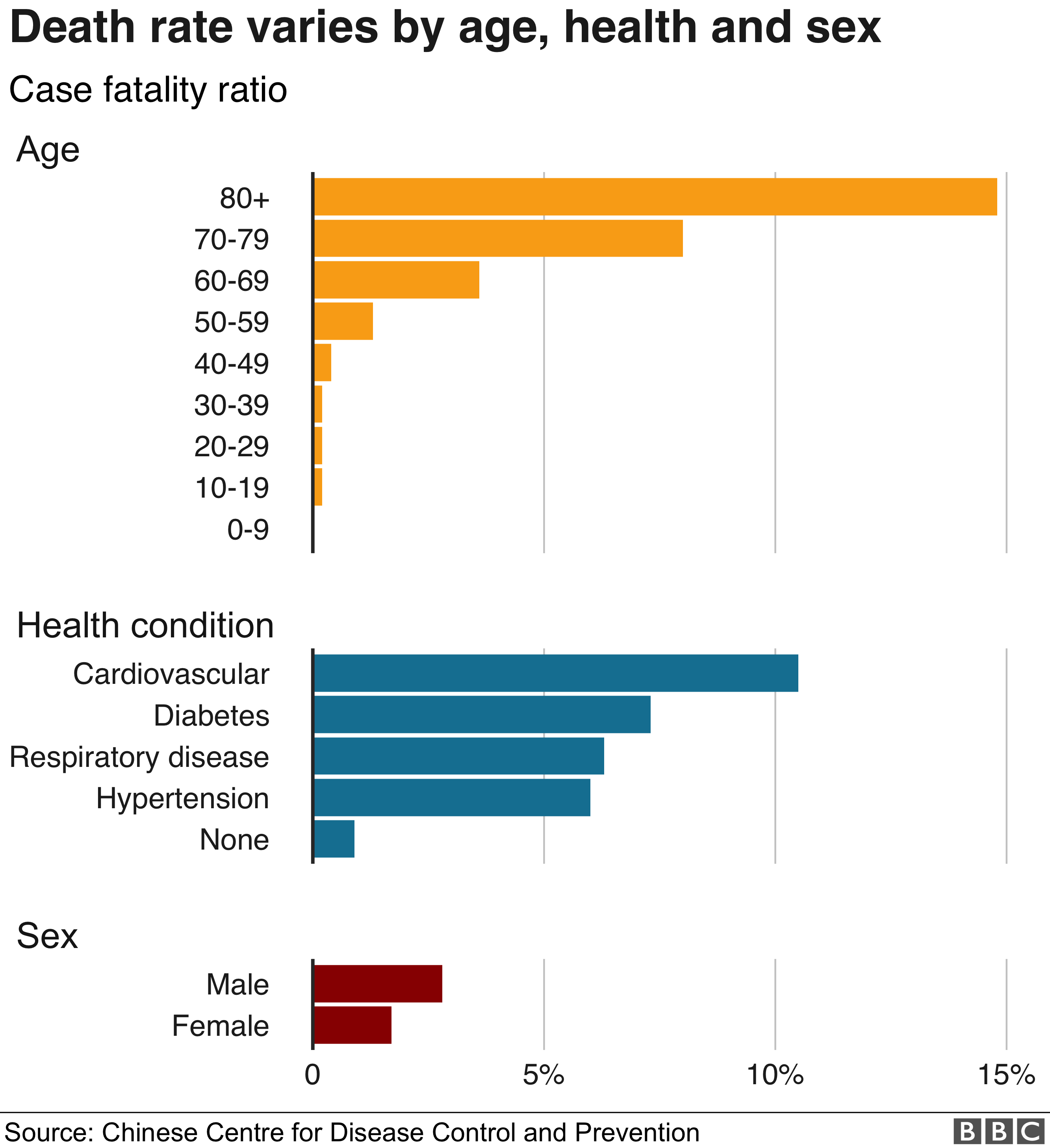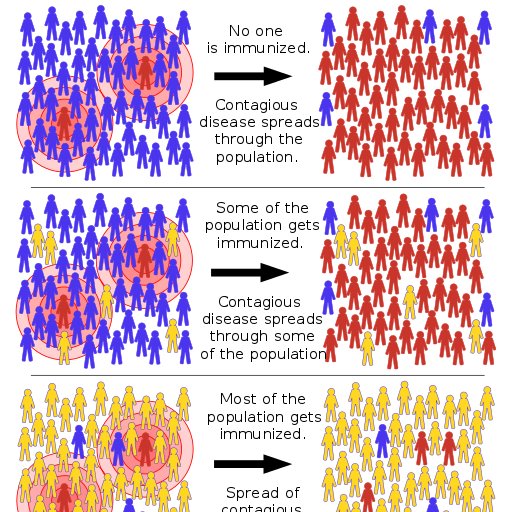Should we stay or should we go?
THAT is the question I've been pondering this weekend as we've had an excellent run in the markets off the bottom and all of our Member Portfolios, except the Dividend Portfolio, are back in the black and we should be THRILLED, in this kind of market – just to get our money back. Still, the thing is – if we go back to cash – then what? This is where the Fear of Missing Out (FOMO) comes in because, while we are comfortable that we can take our cash and make money in any kind of market – we still don't want to miss out on deals of the century, do we?
So I have been reading and thinking all weekend and watching the virus counts and looking at what's happening around the World and considering the data and here's what I think:
21% of 1,300 people tested randomly in New York City and 14% of the people in New York State had antibodies for the Coronavirus. That means 1 out of 6 people have been exposed enough to have had a reaction – it doesn't mean they are definitely immune but we're talking about 15%(ish) of 20M people (that's 3M for Fox viewers) and "only" 300,000 (so far) had symptoms that were noticable enough to get counted while the rest developed anti-bodies after apparently mild exposures.
In New York City, about 21 percent tested positive for coronavirus antibodies during the state survey. The rate was about 17 percent on Long Island, nearly 12 percent in Westchester and Rockland Counties and less than 4 percent in the rest of the state. State researchers sampled blood from the approximately 3,000 people they had tested over two days, including about 1,300 in New York City, at grocery and big-box stores. The results were sent to the state’s Wadsworth facility in Albany, a respected public health lab.
In California, antibody testing in two studies found rates of exposure as hign as 4% in Santa Clara County and 5% in Los Angeles County. Keep in mnd the sampling, at stores, may disproportionately include those who have either already had the illness, or those who naturally tend to go out more and so are more likely to be exposed to the virus but still, the numbers are encouraging.
While none of this changes the fact that we're dealing with a horrible, deadly disease and should use extreme cautioun before we risk exposing 300M Americans to a virus that, even with these optimistic infection rates (that's a strange phrase!), is still 0.05% deadly vs. 0.01% deadly for the common cold (that's 5x more deadly for the Fox viewers) – ECONOMICALLY it means we're dealing with a managable situation where 1.5M people will die over time vs. 2.8M US Citizens who die in an average year.
This is in-line with the Spanish Flu, which killed close to 100M people worldwide and about 1M in the US, when our poulation was only 100M people AND only 25% of the population got the flu, since we were still mostly farmers back then and practiced social distancing by nature at the time.
So a fairly unchecked spread that infects all 330M Americans could kill 1.5M people but identifying sick peolple quickly through stepped up testing and "flattening the curve" could keep us under 500,000 deaths and will spread those deaths out over at least a couple of years – even if there is no vaccine and no cure. Horrible as that is, ECONOMICALLY, we can live with that.
Given that data and given the Government's reaction so far and looking at the reactions around the World, here's what I think is likely to happen and the big assumption I'm making here is that people with coronavirus anti-bodies are not likely to be infected. If that's NOT case, then Coronavirus will be like the flu and we'll get it every couple of years and the life expectancy of human beings will drop significantly.
![]() So how are people likely to react to potential herd immunity? Well, the 20% of the people who have antibodies are certainly going to leave their homes, eventually they will demand (economically) places to go like restaurants and bars that cater to the "immune". That will reduce the effectiveness of our lockdown but it won't mean the curve isn't flattening as each of those people may or may not infect one other person.
So how are people likely to react to potential herd immunity? Well, the 20% of the people who have antibodies are certainly going to leave their homes, eventually they will demand (economically) places to go like restaurants and bars that cater to the "immune". That will reduce the effectiveness of our lockdown but it won't mean the curve isn't flattening as each of those people may or may not infect one other person.
One thing they don't mention about "flattening the curve" is that the aim is not to prevent you from getting the virus – you WILL get the virus – it's just a matter of WHEN. Given that everyone will be exposed to the virus eventually (unless we go to a permanent lock-down until the virus is completely dead in the wild), policy makers don't want the curve TOO flat – as that just drags things out longer than they have to. What they want is to keep people exposed at a level our Health Care system can handle and let's hit that line and get it over with. They don't tell you that but it's true and it drives the policy in the background.
That's why they are encouraging states to open up. There are plenty of states have low infection rates and people won't build up antibodies (herd immunity) if we keep them all locked up so, if their health-care systems can handle it – let their people go!
New York won't ease restrictions because their medical system is at capacity and if you want the Death Rate to go from 0.5% to 5% – just overburden the Health Care System and you'll be there in no time… On the other hand, South Dakota is right, they are sitting at home for no reason as hardly anyone has been infected yet and their hospitals are ready to handle some sick people, so bring them on.
 That leads us to what we will call the "Phuket System" for ending social distancing and here's how I think it will play out. Phuket is a lovely region of Thailand where, although there are many miles of beautiful land wherever you go – everyone lives on top of each other in small villages.
That leads us to what we will call the "Phuket System" for ending social distancing and here's how I think it will play out. Phuket is a lovely region of Thailand where, although there are many miles of beautiful land wherever you go – everyone lives on top of each other in small villages.
IF this antibody testing holds up, then what we'll start seeing in major cities, where the infection rates are hitting 20%, is likely to be as follows:
- The people who have tested positive for anti-bodies will begin going out more.
- This will put pressure on other people (their friends) to say "Phuket" and go out as well.
- Certain bars, restaurants, movies and clubs will brand themselves "Antibody Friendly" or "Phuket", if it catches on (#Phuket) and things there will be pretty normal – other than the selectivity of their clients.
- Young people are extremely likely to go out since they have very low rates of noticable infections so let's say people under 20 pretty much all say "Phuket" and are out within a month (think how long the last month has seemed and imagine another month if you were a teenager).
- If this doesn't have horrible consequences, that behavior will begin to be mimicked by the under 40 crowd and almost all of them will say "Phuket" and be back to work and, in short order, back to bars and restaurants.
Now we have a bifurcated society where 25% of the people over 40 (who have antibodies) and almost all the people under 45 (200M) will be back to "normal" and, since they have the money, you can be damned sure those busineses will be caterting to their needs. Of the 85M citizens between 45-65, I'd say 75% of them (64M) will say "Phuket" and go back to work for economic reasons. That will leave 25% of that group (21M) and 75% of the seniors (50M) who haven't been exposed and are considered high risk (35M) still shut in in the fall.

That's 56M high-risk Americans this Fall and, like any good Zombie Apocalypse, it will get worse every day as the low-risk or risk-taking people in the Phuket Group number 274M (83%) of your fellow citizens and that means that you will now have to act very carefully to avoid the infected hoards and all the stores, bars and restaurants will be open – but not for you. YOU will have to go out of YOUR way to find places that cater to your special needs and there will be plenty – as you'd still be 17% of the population, but the cost of catering to you will increase substantially.
It's enough to make you want to say "Phuket" and take your chances, right?
 So that is our most likely future. If easing the lockdowns isn't a disaster in the early cities, then more and more people will say "Phuket" every day and yes, more and more people will be infected but if the ratio remains 10 unnoticeable cases to every 1 serious case (still MUCH worse than the flu, no matter what Fox says), then herd immunity, here we come!
So that is our most likely future. If easing the lockdowns isn't a disaster in the early cities, then more and more people will say "Phuket" every day and yes, more and more people will be infected but if the ratio remains 10 unnoticeable cases to every 1 serious case (still MUCH worse than the flu, no matter what Fox says), then herd immunity, here we come!
Economically, even given the drastic lockdowns, we're still at about 70% of our normal economy and that's because people are still eating and shopping (albeit on-line) and paying their rents and auto loans (for cars we don't drive) and utilities, etc.
The Government has provided plenty of money to get us through June and it's only the end of April so, timing-wise, if the early States that go back aren't much worse by mid-May – Phuket begins around the 15th (still 3 weeks away) and you'll see young people looking for hotels on Memorial Day weekend (25th) along with restaurants and the pressure will ratchet up from there, into July 4th where – if we don't collapse our medical system, the under 45 crowd will decide it's time to get back to normal.
So, if we assume Q2 is shot (ends May 30th) and we're down 30% but then only down 15% in Q3 and down less than 10% in Q4, I don't see the overall economy being down much more than 10% overall and that's $2Tn and the Government has put more than $2Tn into the market and is certainly willing to put in more so I don't think we should sell our long positions UNLESS we start seeing re-spreads of the virus in places where restrictions are easing.
Otherwise, PHUKET!
(with sensible hedges, of course)



